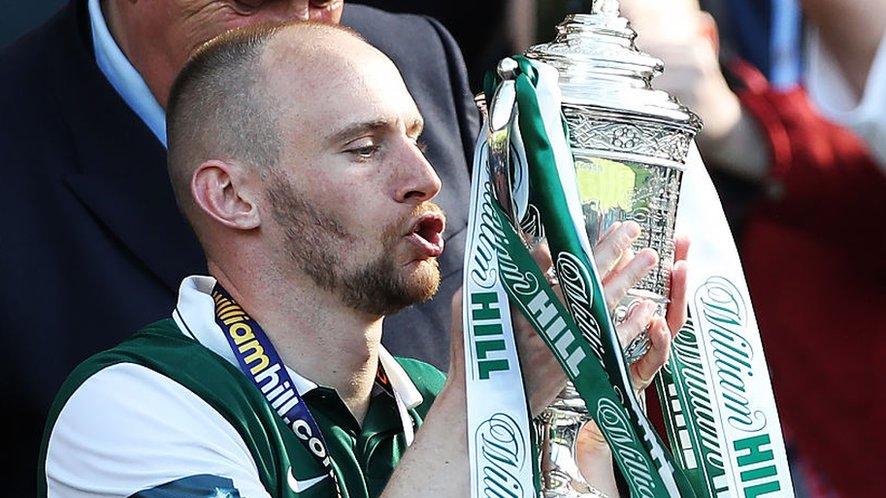Rangers 2-3 Hibernian: Deserved Scottish Cup winners but chaos mars glory
- Published
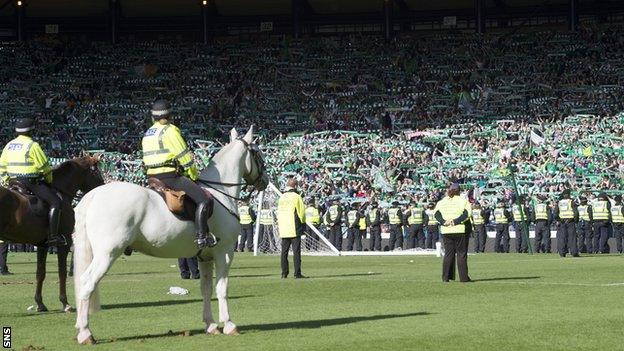
Hibs fans, watched closely by police, celebrate winning the Scottish Cup for the first time since 1902
Chaos infiltrated the Scottish Cup final. Slipshod defending and careering drama seem a banal consequence, though, compared to the scenes after the final whistle at Hampden.
Exuberance, and a potent mix of longing and relief at the end of a tortuous 114-year wait to lift the Scottish Cup again, might have carried Hibernian supporters out of their seats and onto the pitch.
Restraint was critically cast aside, however, particularly by those who ran towards the Rangers end to goad the opposition support and players. Small pockets of Rangers fans inevitably spilled onto the pitch as a result, with bouts of fighting taking place, while members of the team were caught up in the melee.
Rangers said afterwards in a statement that players and staff were "assaulted". It cast a horribly grim and alarming reflection on an occasion that ought to have been alive with glory and redemption.
Other moments had briefly marred the event earlier, with two flares in the Rangers end and a rendition of the Billy Boys., external The pitch invasion cannot be dismissed as purely joyful, though, when punches were thrown and players and match officials had to be escorted from the field.
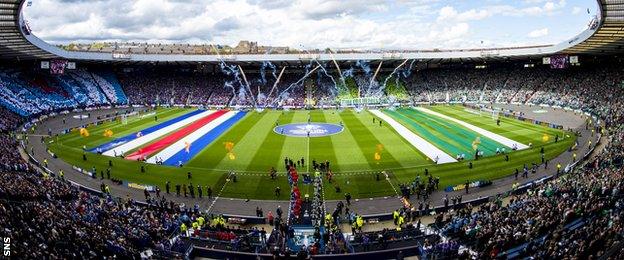
Rangers and Hibernian fans created a colourful spectacle before the game
The majority of those who took to the pitch merely wanted to mark the moment - Hibs fans huddled for pictures, some holding great dollops of turf - and seemed genuinely overcome by emotion. Others swarmed over the crossbar of the goal where the winner was scored, and it soon collapsed.
The scene was a mass of contradictions: gleefulness, tears, vindictiveness, violence; club and stadium staff looked on wearing increasingly worried looks while the scenes remained out of control.
Order was eventually restored, but it was 17.25 GMT, 40 minutes after the final whistle, before the Hibs players could re-emerge for their moment of triumph. The Hibs fans had eventually returned to the stands, but their end of the pitch remained ringed by stewards and police throughout the trophy presentation.
The emotional resonance of the club anthem, Sunshine On Leith, rang a little hollow given the events that preceded it. The aftermath will need to be picked through, not least the time that it took for police and stewards to restore order to the pitch invasion, but also how players and staff could be left in harm's way.
The authorities will pore over what happened. The football will seem incidental at times, yet Hibs' celebrations will be heedless of the game and its aftermath. The club has waited so long, and endured such taunts and heartbreak in the meantime, that holding the Scottish Cup again for the first time since 1902 will seem like a cathartic moment.
On the balance of play, they deserved their win. The game was reckless at times, since defensive frailties abounded. Rangers were most beset by them, though, with James Tavernier exposed again and again. He lacks the instincts of a full-back, and at one stage was the most advanced Rangers' player at a time when Hibs were attacking.
Lee Wallace was prepared to tuck in and offer cover on the left, yet even in the second half when Tavernier's attacking forays were more pronounced, Stokes still left him looking sluggish.
It looked a ploy by Hibs to attack the space between Tavernier and the equally fragile Rob Kiernan, while their own back three was designed to limit the corridors of space that Rangers like to attack through in the final third, particularly when the wing-backs dropped deep to make a defensive five. Yet twice they lost the diminutive Kenny Miller in the air.
Rangers looked out of sorts at times, yet still hauled themselves into the lead. There are matters to address ahead of their return to the top-flight, since dominating possession does not always result in a succession of scoring opportunities.
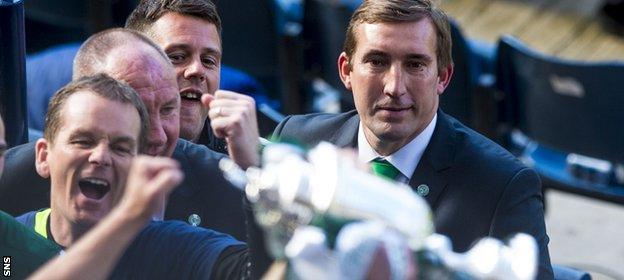
Alan Stubbs finally got his hands on silverware as Hibernian manager
Yet the game itself, the story of the match, belongs to Hibs.
Their fans unfurled a banner before kick-off that read: Time For Heroes - and it was quickly scrambled back up after the pitch invasion. Stokes, certainly, delivered his best performance during this second spell at the club. John McGinn, too, was typically robust and industrious, while Liam Henderson's set-piece deliveries were excellent.
Hibs found the means to win, to deliver a significant, resounding moment with David Gray's late header. For Alan Stubbs, this was, finally, a gilded achievement to mark a season that had threatened to only be notable for falling short.
Hibs have another season in the Championship to contemplate, but that will seem incidental to their supporters for now. So, too, will recriminations, but the authorities cannot let the scenes go without condemnation, or fail to act on them.
The record books will, all these decades on, record another Scottish Cup win for Hibs. Yet the occasion could have ended in much worse scenes. Some of it was bad enough, particularly with reports of Rangers players and staff being harmed. That mars any sense of it being a glorious occasion.
- Published21 May 2016
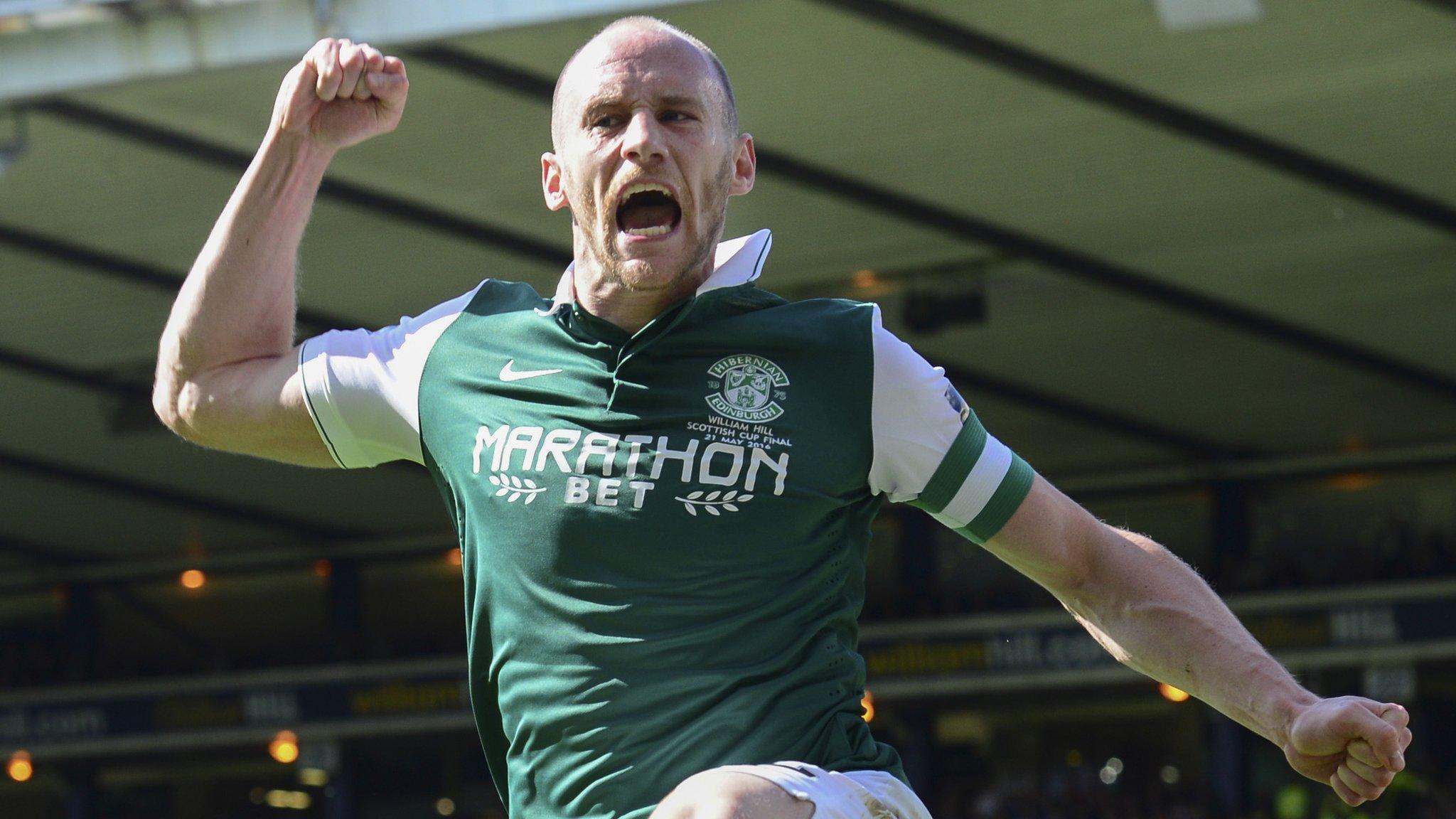
- Attribution
- Published21 May 2016
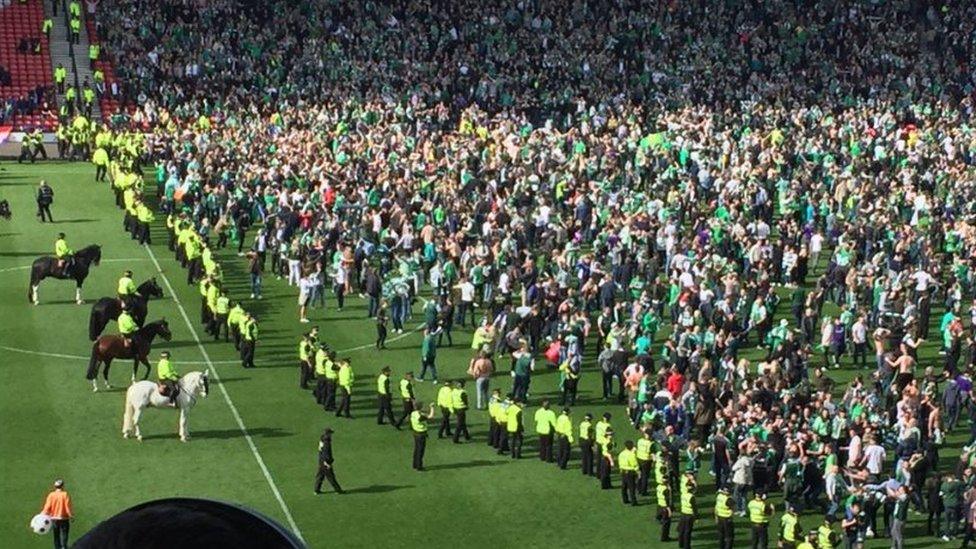
- Published21 May 2016
